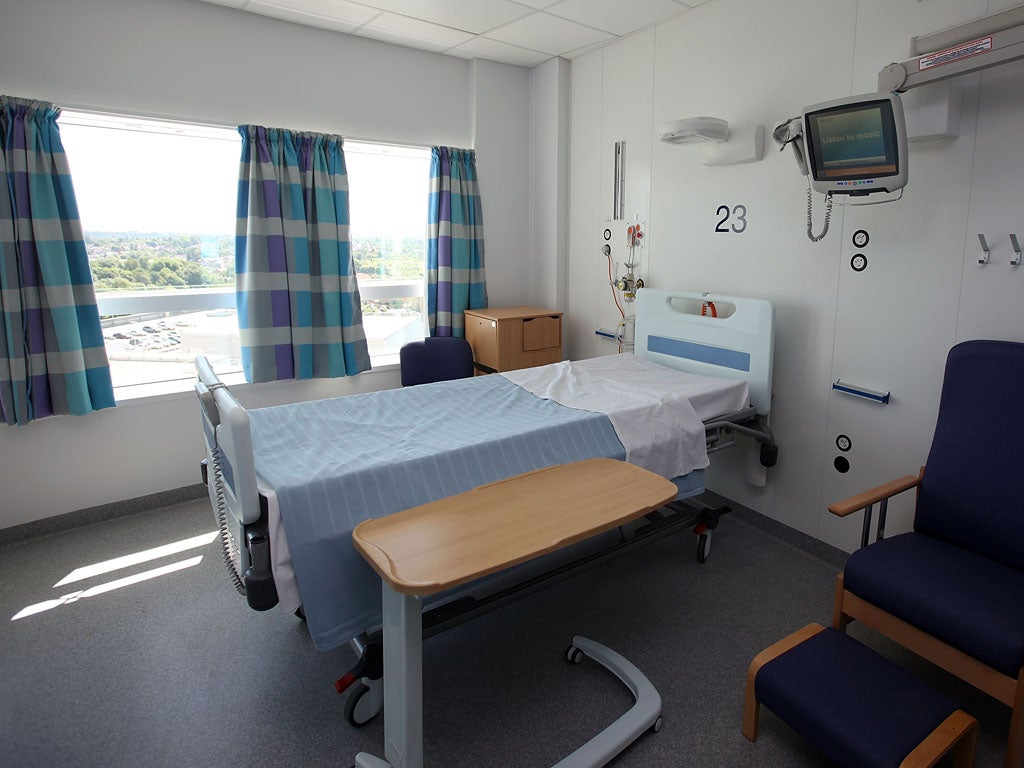Inside Whitehall: Care.data will help prolong our lives and those of our children
In any scheme of this nature there is a trade-off between privacy and better health

A year or so ago I was talking informally to a senior hospital clinician who was facing a conundrum. Her hospital had recently carried out a piece of research comparing its cancer survival rates with those of neighbouring trusts. What they found shocked them.
They discovered that patients referred to them for certain types of cancer treatment were more than twice as likely to be alive five years later than those referred to another hospital nearby. A potentially fatal disparity of care. But the hospital then carried out a case-note audit and found something they had not expected – the cancer in the patients they had seen was far less advanced than it was in the patients treated by the neighbouring hospital.
The conundrum was this: was the discrepancy due to the stage at which patients reported to their GP with symptoms or, more worryingly, was it due to variations in initial diagnosis? I was reminded of this last week when the NHS announced the (so far temporary) demise of plans to create the world’s first centralised database of the medical records of every patient in England.
That database would solve this conundrum and many others like it and potentially save or prolong many lives. But it is now in peril. So what exactly is Care.data and why have things gone wrong?
At its heart is a simple conceit: that good medicine is often determined by good data. The first links between smoking and lung cancer, for example, were established by large-scale studies which proved a connection irrefutably. Equally, the opening up of hospital data over the last 10 years helped expose the Mid-Staffs scandal and has driven improvements in hospital care.
But there is one gaping hole in this knowledge that Care.data is due to fill: access, in useable form, to our complete medical records from cradle to grave.
The medical potential for such a resource is huge. The new database will allow researchers to examine health outcomes for the first time at GP practice level. The NHS will be able to see who is getting what treatment and how effective it is. Not only that, they will be able to identify which GPs are over-prescribing antibiotics; which are using expensive branded drugs instead of cheaper alternatives; and how many times a patient is seen before they are eventually diagnosed.
On a broader level, if there are suspicions that a new drug may be having unintended or damaging side effects (think thalidomide) then it will be possible, almost at the touch of a button, to identify everyone who has been prescribed that drug to see if they have reported problems.
In short, Care.data will help prolong our lives and those of our children. So why has it been so controversial? The answer is a mixture of chronic mishandling by the NHS and overblown privacy concerns.
Those behind the scheme have been so evangelistic about it that they seem to have forgotten the need clearly to explain to the public why it is important. As a result, the public debate has all been about who might legally and illegally get access to our patient records and how they might misuse them.
The truth is that in any scheme of this nature there is a trade-off between privacy and better health. But having looked into the safeguards that are in place to anonymise data and protect privacy, the answer to me is clear. Care.data has far more potential to help than to hurt – and should start as soon as possible.
Join our commenting forum
Join thought-provoking conversations, follow other Independent readers and see their replies
Comments
Bookmark popover
Removed from bookmarks